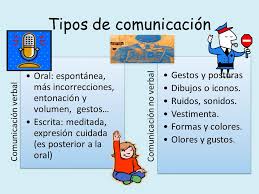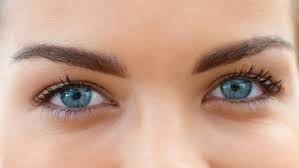martes, 27 de octubre de 2015
miércoles, 21 de octubre de 2015
ESCRIBO NOTICIAS
Ahora que he aprendido muchos aspectos sobre el periódico, el periodismo y cómo se estructura y se escribe una noticia, voy a ponerme manos a la obra y voy a redactar mis propias noticias.
Pincha en la foto para acceder al enlace:
Pincha en la foto para acceder al enlace:
sábado, 17 de octubre de 2015
miércoles, 14 de octubre de 2015
miércoles, 7 de octubre de 2015
LA COMUNICACIÓN
Cuando nos comunicamos, intercambiamos información o expresamos opiniones o sentimientos.
En la comunicación siempre hay los siguientes elementos:
- Emisor: el que elabora y envía el mensaje.
- Receptor:el que recibe el mensaje.
- Mensaje:lo que se dice o se comunica.
LA COMUNICACIÓN I
LA COMUNICACIÓN II
LA COMUNICACIÓN III
TIPOS DE COMUNICACIÓN:

En la comunicación siempre hay los siguientes elementos:
- Emisor: el que elabora y envía el mensaje.
- Receptor:el que recibe el mensaje.
- Mensaje:lo que se dice o se comunica.
LA COMUNICACIÓN I
LA COMUNICACIÓN II
LA COMUNICACIÓN III
TIPOS DE COMUNICACIÓN:
VERBAL NO VERBAL
lunes, 5 de octubre de 2015
HELLO THERE!
Can you remember Wh- words in English?
We use them to start a question.
Play these games now:
Question Words (?)
What / When / Where / Who
Questions - exercises
++++++++ADJECTIVES++++++++++
What are adjectives?
comparative adjectives

Ben is tall Tom is short
Ben is taller than Tom Tom is shorter than Ben
Study the examples. How dou you form comparative adjectives in English?
Click on the picture to have some practice with comparative adjectives.
Play here Comparatives 3 - type
+++++++++++DESCRIBING PEOPLE+++++++++++
She has brown eyes 
She has blue eyes 
He has green eyes
He has black eyes s

She has long blonde hair
p
INVERTEBRATES
Listen to the song and find out the characteristics of invertebrate animals:








INVERTEBRATES
They do not have a backbone.
We can classify invertebrates into six
groups.
1-
ARTHROPODS
|
Arthropods have an external
skeleton called exoskeleton.
1.4-insects- FLY
1.1-crustaceans-CRAB 1.3-aracnid-SPIDER They have three body parts:
They have two body They
have two body
head, thorax and abdomen.
parts: cephalothorax and
abdomen. parts: cephalothorax and abdomen They have two antennae and three
Their exoskeleton is very hard. They have four pairs of legs Most have one or two pairs of
wings. They have five pairs of legs and up to eight
eyes.
and four
antennae.
1.2-myriapods-CENTIPEDE
They have long , thing, segmented bodies.
They
have many pairs of legs and two antennae.
2- MOLLUSCS
|
These are a big group of invertebrates. There are three subgroups.
2.1 gastropod- SNAIL 2.3 cephalopod-SQUID
2.2. bivalves- MUSSELS
3-EQUINODERMS-
STARFISH
|
They live
at the bottom of the sea.
They are covered by
a hard, spiny skin
4-SPONGES
|
They live
in water.
They are very simple animals,
they have no muscles,
nervous system or circulatory system.
5-ANNELIDS-WORM
|
They have long, soft bodies
with moist skin.
Many annelids are parasites
and live inside other animals.
They can live
in water and on land.
6- CNIDARIANS
JELLYFISH
|
Cnidarians live in the sea.
They have a soft, jelly-like body with
one opening. This opening is surrounded by venomous
tentacles.
Suscribirse a:
Comentarios
(
Atom
)



